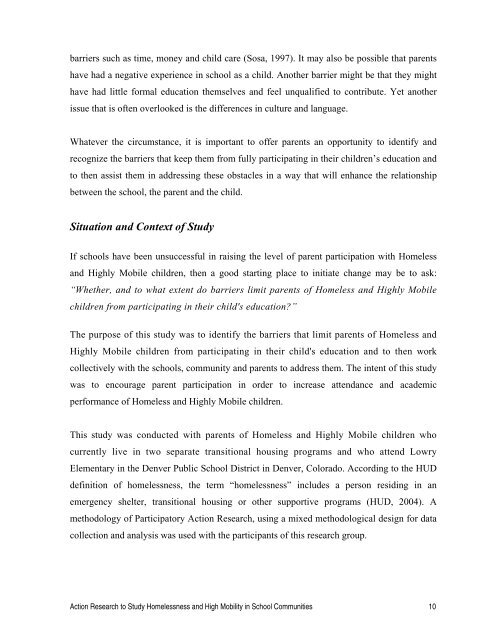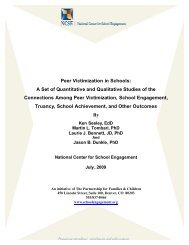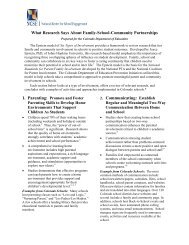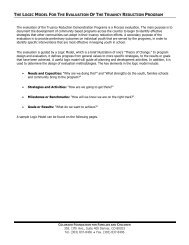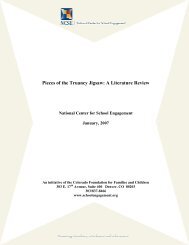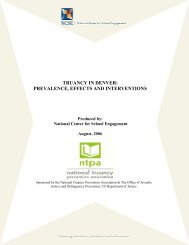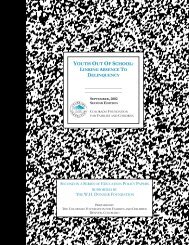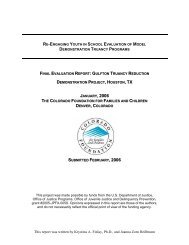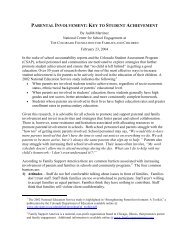Section 1: Academic Achievement - National Center for School ...
Section 1: Academic Achievement - National Center for School ...
Section 1: Academic Achievement - National Center for School ...
You also want an ePaper? Increase the reach of your titles
YUMPU automatically turns print PDFs into web optimized ePapers that Google loves.
arriers such as time, money and child care (Sosa, 1997). It may also be possible that parents<br />
have had a negative experience in school as a child. Another barrier might be that they might<br />
have had little <strong>for</strong>mal education themselves and feel unqualified to contribute. Yet another<br />
issue that is often overlooked is the differences in culture and language.<br />
Whatever the circumstance, it is important to offer parents an opportunity to identify and<br />
recognize the barriers that keep them from fully participating in their children’s education and<br />
to then assist them in addressing these obstacles in a way that will enhance the relationship<br />
between the school, the parent and the child.<br />
Situation and Context of Study<br />
If schools have been unsuccessful in raising the level of parent participation with Homeless<br />
and Highly Mobile children, then a good starting place to initiate change may be to ask:<br />
“Whether, and to what extent do barriers limit parents of Homeless and Highly Mobile<br />
children from participating in their child's education?”<br />
The purpose of this study was to identify the barriers that limit parents of Homeless and<br />
Highly Mobile children from participating in their child's education and to then work<br />
collectively with the schools, community and parents to address them. The intent of this study<br />
was to encourage parent participation in order to increase attendance and academic<br />
per<strong>for</strong>mance of Homeless and Highly Mobile children.<br />
This study was conducted with parents of Homeless and Highly Mobile children who<br />
currently live in two separate transitional housing programs and who attend Lowry<br />
Elementary in the Denver Public <strong>School</strong> District in Denver, Colorado. According to the HUD<br />
definition of homelessness, the term “homelessness” includes a person residing in an<br />
emergency shelter, transitional housing or other supportive programs (HUD, 2004). A<br />
methodology of Participatory Action Research, using a mixed methodological design <strong>for</strong> data<br />
collection and analysis was used with the participants of this research group.<br />
Action Research to Study Homelessness and High Mobility in <strong>School</strong> Communities 10


